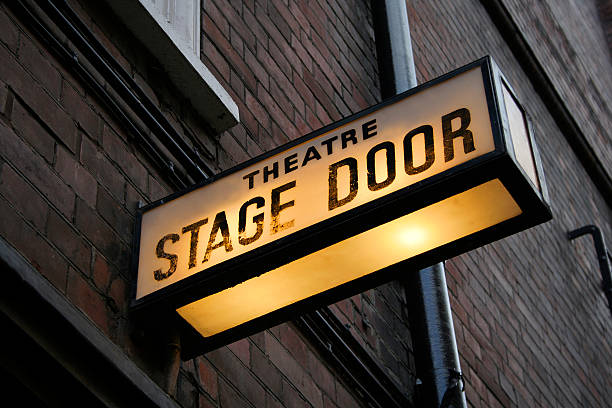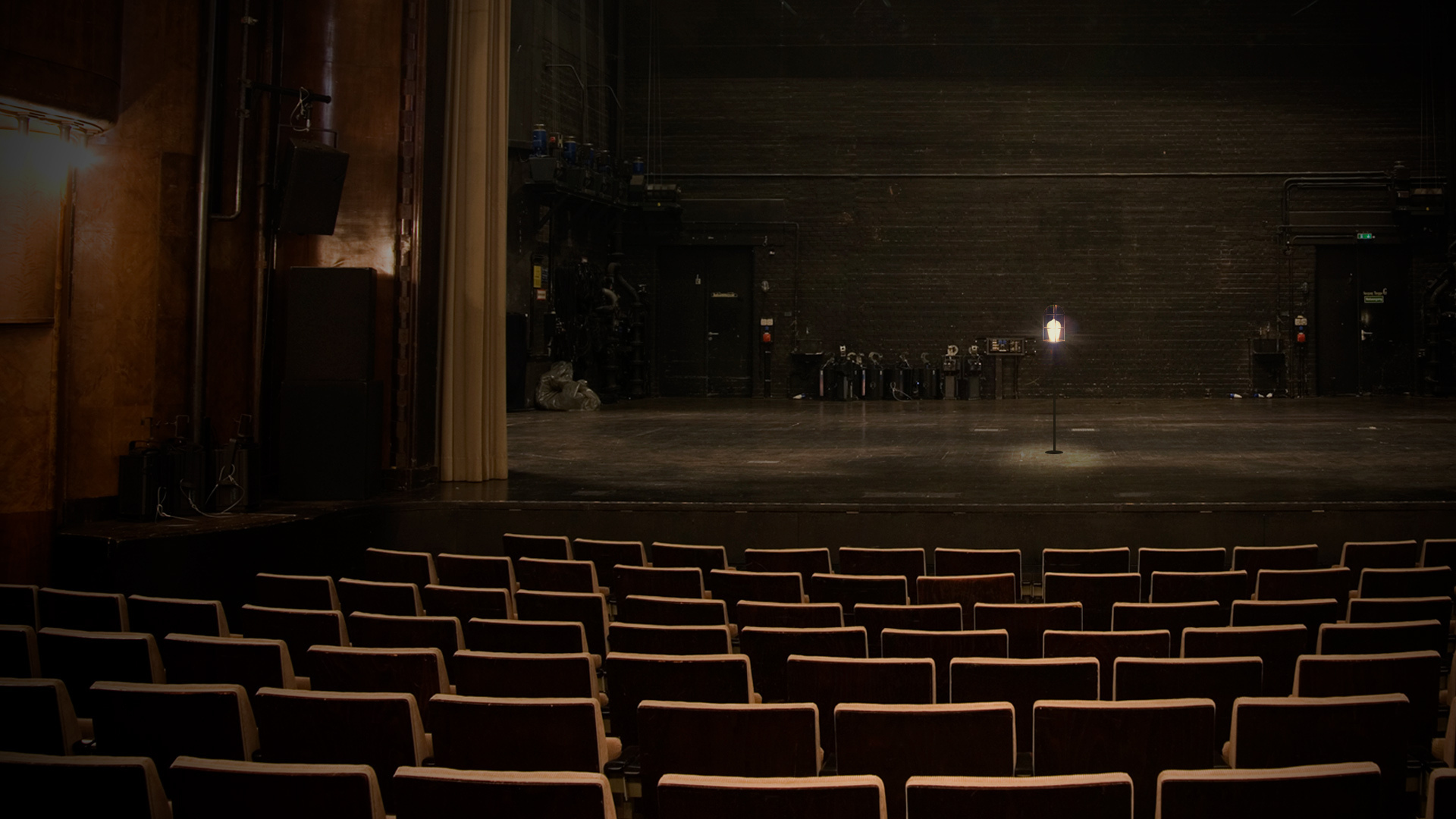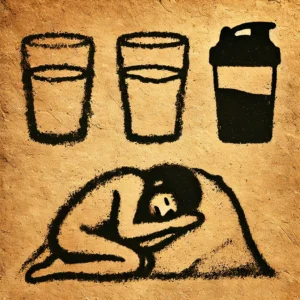A Curtain Speech

I rarely preface my Fireflidea memoirs, but this one needs context. The catalyst for my recent journey into therapy, my diagnoses of BPD and OCD, and my increasingly self-reflective essays was a break-up—one that forced me to examine patterns I’d spent a lifetime perfecting but never understanding. Tonight, I saw her for the first time since we parted ways.
In one of our last real conversations, tucked somewhere between the mess of endings and beginnings that marked our final chapter: she asked me, with gentle but firm resolve, not to write about her, or too her, anymore. I promised. And yet here I am, fingers hovering over keys, breaking that promise because some encounters carve themselves into your chest with such precision that the only way to examine the cuts is to trace them with words.
Act One: Setting The Scene
I was there that night with a friend experiencing her first true repertory theater production. From the moment the house lights dimmed and revealed the elaborate Victorian set, I watched her face light up with each new discovery. There’s something magical about witnessing someone fall in love with live theatre—the way she leaned forward during tense moments, how she’d glance at me wide-eyed when a particularly clever line landed. Patrick Hamilton’s classic melodrama was working its spell, and I was getting to experience it twice: once through the performance, and again through her wonder-filled eyes.
At intermission, she asked me to show her to the restroom. Of course I agreed—I was, after all, essentially her date for the evening, though we had both avoided labeling it as a date. A theater companion, nothing more, sharing in the simple joy of storytelling done well.
The lobby was doing its usual dance—women queued in a semi-organized spiral around the corner, men flowing through their door with irritating efficiency. And there, at the grand piano that’s sat in that lobby longer than most of the theater’s subscribers have been alive, sat my ex-girlfriend.
“I’m Taking Requests.”

She was beautiful. She’s always been beautiful, but this was different. This was the kind of beautiful that comes from somewhere deeper than features or fashion—the kind that radiates from people who have found their light again. I hadn’t seen her in almost ten months, but I’d rehearsed this moment countless times in my head, scripting clever lines and casual poses like an actor preparing for an audition I hoped would never come.
I don’t remember crossing the room to her. Memory plays tricks like that sometimes, editing out the mechanical parts of moments that change us. One second I was exiting the theatre doors, the next I was standing before her at the piano, all my carefully crafted lines evaporating like stage fog.
Without missing a beat—she never missed beats, that was always my department—she smiled and waved her hands over the piano keys. “I’m taking requests,” she quipped.
God, she was always so funny. Is so funny. The kind of wit that doesn’t need to announce itself, that flows as naturally as breath. I’ve spent the hours since that moment writing dozens of clever responses in my head. Something about how life doesn’t take requests. Or maybe a reference to our shared history of favorite songs. Or perhaps…
But what I actually said was something about the last play they’d produced there. A comedy I’d told her about countless times when we were together, one I’d wanted to share with her because I knew—thought I knew—she’d love it as much as I did. I asked if she’d seen it, knowing full well she had, just wanting to hear her voice shape the words.
“Ethan loved it,” she said, gesturing to the man standing behind her. No malice in her voice, no hidden message. Just a simple statement of fact, as clean and clear as the note of a perfectly tuned piano key.
Ethan. We’ll call him Ethan. The person who came after me, who showed up in her life with timing that my anxiety initially read as suspicious but my growing wisdom now recognizes as simply life’s way of proving that sometimes “it’s not you, it’s me” really means “it’s not you, it’s us.” I shook his hand. I think. I know my hand moved in the general direction of his, but I couldn’t tell you if our eyes met.
My chest hurt.
Not in the metaphorical way writers often describe heartache, but in the real, physical way that makes you wonder if emotional pain can trigger cardiac events. Part of it was the standard issue heartbreak that never quite healed. Part of it was knowing that I wasn’t going to say the right things, that I couldn’t match her easy grace with my stumbling attempts at normalcy.
But mostly, it hurt because I realized something: my pain in that moment was selfish. She was happy. Genuinely, radiantly happy in a way I hadn’t seen toward the end of our time together. And here I was, threatening to cast shadows on her evening with my unresolved feelings and unpracticed lines.
I made some excuse about getting something from my car. Grabbed a jacket I didn’t need. Stood in the cool night air until I thought enough time had passed for everyone to return to their seats. My friend found me there, asked if I was cold. I said yes, because sometimes the simplest lies are kindest.
Noises-Off

During the second act, I tried to calibrate my reactions—not too enthusiastic, not too subdued, in case she was watching. But I doubt she was. That’s not her style. She’s learned what I’m still struggling to grasp: that the present moment deserves our full attention, not just our peripheral vision searching for ghosts of what used to be.
The irony of all this happening during a production of “Gaslight” isn’t lost on me. A play about manipulation and distorted reality, about the stories we tell ourselves and others, about the fine line between what’s real and what we convince ourselves is real. I’ll write about that another time, probably several times, because that’s what I do now—I write. These Fireflideas essays, born partly from trying to understand where I went wrong with us, have become my way of feeling sane, of making sense of the scripts I’ve followed and the ones I need to rewrite.
I know seeing her will set me back. I’ll spend more time than I should replaying those few minutes, writing and rewriting clever responses to “I’m taking requests.” But maybe that’s okay. Maybe part of growth is accepting that healing isn’t linear, that sometimes we take two steps back into the past before we can step forward again.
And maybe, just maybe, breaking my promise not to write about her this one last time is forgivable. Because while this might look like a story about her, about us, it’s really a story about me. About learning to recognize when the pain in your chest is trying to teach you something. About the difference between the scripts we write in our heads and the improvisational nature of real life. About how sometimes the kindest thing we can do—for others and ourselves—is to exit stage left, even if we haven’t delivered all our lines.
The next time I see her—because there will be a next time in a town this size—I hope I’ll be better at this. More aware, more present, more able to match her graceful handling of an awkward situation. Until then, I’ll keep writing, keep growing, keep learning to trust that even unscripted moments can lead to better endings than the ones we rehearse.









